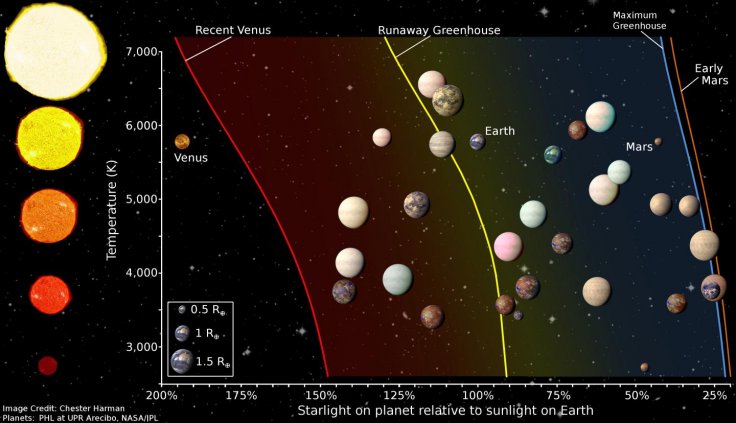
20 more potentially habitable Exoplanets besides Earth discovered by NASA
NASA’s Kepler mission has provided insights into the potential alien world by marking the discovery of 20 new Exoplanets which might be habitable as suggested by the scientists. This significant breakthrough could be a potential to find the 2nd Earth proving that there are other habitable planets other than just ours.
According to the scientists that reviewed the research, these new planets could be our best bet to find an alien world which is thriving just like ours in another solar system. Most of the discovered new worlds bear strikingly same appearance to our Earth apart from a few differences here and there. Problems like short years always seemed to be a cause for concern for any planet that had chances of housing alien life, but these worlds have almost similar year duration as ours which makes them apt for holding life. Also, the scientists noticed that the temperatures in these planets are quite similar to those of ours which adds up to the total potential scenario.
The planet which was the closest in resemblance to our Earth has been named as KOI-7923.0 by the researchers. This planet just might be the best contestant for the race of Earth 2.0.
This planet has 395 days and is just 3% less than the total size of our Earth. KOI-7923.0 is on the colder side due to its distance from the sun plus the sun in that particular galaxy is a little colder as compared to ours. But this small difference isn’t a major issue. To summarize it, the warmer part of the planet is similar to the colder parts of our Earth.
According to Jeff Coughlin, a team leader from the Kepler project, any future spacecraft sent to the planet would not be a bad option as the planet is remarkably similar to ours. The news of these findings was first reported in the New Scientist.
Scientists explain that these total 20 Exoplanets found have about 70-80% chance of being a strong candidate for a new world with life. This confirmation needs further work to derive a 100% result and information. This process has experienced a halt for now as the Kepler Spacecraft has undergone technical glitch.


